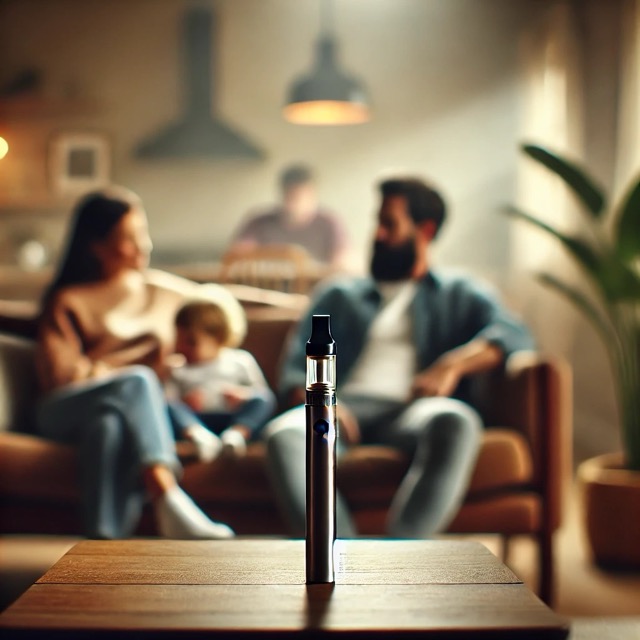New Study: How Cannabis Can Influence Positive Parenting

As cannabis use becomes more widely accepted and legalized across several states, new research continues to explore its impacts on different aspects of life, including parenting. A recent study titled “Examining the Context of Cannabis Use and Parenting: An Exploratory Ecological Momentary Assessment Study” by Bridget Freisthler, Holly Thurston, and Jennifer Price Wolf, provides a fresh look into how cannabis use by parents may influence their parenting behaviors.

Study Overview
The primary goals of this exploratory study were to understand:
- The frequency and context of cannabis use among parents, especially in the presence of their children.
- How cannabis use affects parenting behaviors, both immediately and in the subsequent periods after consumption.
- The influence of the social context during cannabis use (e.g., who is present) on parenting behavior.
Using an ecological momentary assessment (EMA) method, researchers gathered data from 77 cannabis-using parents in the greater Sacramento, California region. Over a 15-day period, parents completed 4,138 brief surveys that measured cannabis use and parenting behavior.
Key Findings
Cannabis Use Around Children: The study found that while parents frequently reported being with their children, cannabis use in the direct presence of children was rare. Parents used cannabis during 44.7% of the assessments, but children were only physically present during 10.8% of the episodes when cannabis was consumed. This indicates a general tendency among parents to avoid using cannabis around their children.
Positive Parenting and Cannabis Use: One of the most striking findings was that cannabis use was associated with increased positive parenting behaviors. Parents who used cannabis were more likely to report behaviors such as showing affection, attentiveness, and warmth during and immediately after cannabis consumption. This effect was even noted in the next time period following cannabis use, suggesting that cannabis might help some parents engage more positively with their children by reducing stress or helping them be more present.
Aggressive Discipline: Contrary to concerns that cannabis use might lead to negative parenting behaviors, such as aggressive discipline, the study did not find a direct link between cannabis use and increased aggression. Although there was a slight correlation between cannabis use and aggressive discipline in subsequent periods, this relationship was not significant when controlling for other individual factors.
Social Context Matters: The presence of other individuals during cannabis use also played a role in shaping parenting behaviors. For instance, parents who used cannabis with their spouse or friends were more likely to engage in positive parenting in the following time periods. In contrast, using cannabis in the presence of acquaintances or individuals with weak social ties was associated with higher odds of aggressive discipline. This finding suggests that the social environment in which cannabis is used can influence how parents behave with their children.
Mode of Cannabis Consumption: The method of cannabis consumption also influenced parenting behaviors. Parents who vaped cannabis were less likely to use aggressive discipline in the period following cannabis use compared to those who consumed edibles. This could be due to the differing onset and duration of effects between vaping and edibles, with edibles having longer-lasting and more potent effects, potentially impairing cognitive functioning and decision-making.
Implications for Parenting and Cannabis Use
This study offers several important insights for parents, healthcare providers, and policymakers navigating the growing landscape of cannabis legalization. For one, it challenges some of the common stereotypes about cannabis use and parenting, particularly the idea that cannabis use inherently leads to neglectful or harmful parenting. Instead, the data suggest that many parents use cannabis in ways that minimize exposure to their children and that, for some parents, cannabis use may actually enhance their ability to engage positively with their children.
At the same time, the findings highlight the importance of the context in which cannabis is consumed. The social environment and the method of consumption can influence parenting behaviors, suggesting that harm-reduction strategies—such as using cannabis in private or avoiding its use in stressful social situations—could be beneficial for parents who use cannabis.
Limitations and Future Research
While this study provides valuable insights, it is important to note that it is exploratory and based on a small, non-representative sample. More research is needed to generalize these findings to a broader population of parents. Additionally, the study did not differentiate between medical and recreational cannabis use, nor did it examine the quantity of cannabis consumed, both of which could have significant impacts on parenting behaviors.
Future studies could benefit from larger, more diverse samples, as well as a deeper exploration of how different types of cannabis use (e.g., for medical vs. recreational purposes) influence parenting. Moreover, qualitative interviews with parents could offer a richer understanding of the motivations behind cannabis use and its perceived effects on parenting.
Practical Takeaways for Parents
For parents who use cannabis, this study offers several practical insights:
Mindful Consumption: If you use cannabis, be mindful of when and where you consume it. The study suggests that cannabis use around children is rare, but avoiding use in their presence altogether can help prevent any potential negative modeling of behavior.
Social Context Awareness: Consider who is around when you use cannabis. The presence of supportive individuals, like a partner or close friends, may help create a more positive environment for parenting.
Mode of Use: If you use cannabis to alleviate stress or manage pain, vaping may offer more control over the effects compared to edibles, which can have a longer duration and more potent effects.
Harm Reduction: If you’re using cannabis, adopting harm-reduction strategies, such as consuming it in private or ensuring your children are safely occupied, can help mitigate any potential risks.
Conclusion
As cannabis use continues to rise, particularly in states where it is legalized, understanding how it affects parenting is critical. This study offers an early glimpse into the nuanced relationship between cannabis use and parenting, suggesting that cannabis does not inherently lead to negative parenting behaviors and may even promote positive parenting in certain contexts. However, the social environment and mode of consumption are important factors to consider, and more research is needed to fully understand the long-term impacts of parental cannabis use.
For parents who use cannabis, adopting mindful consumption practices and harm-reduction strategies can help ensure that cannabis use does not negatively affect their ability to engage in positive parenting behaviors.
Read the full study here.





Responses